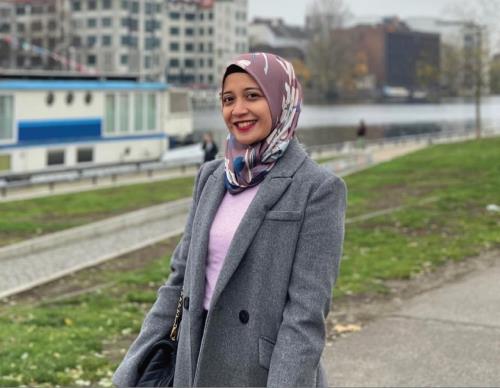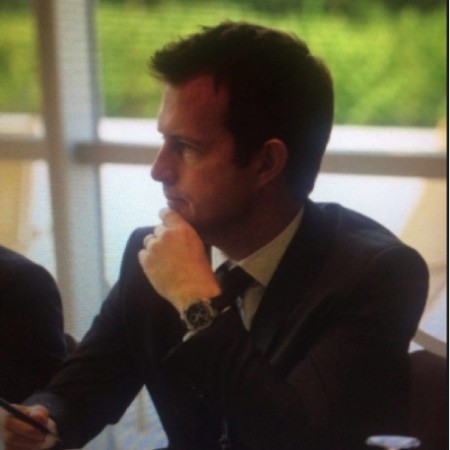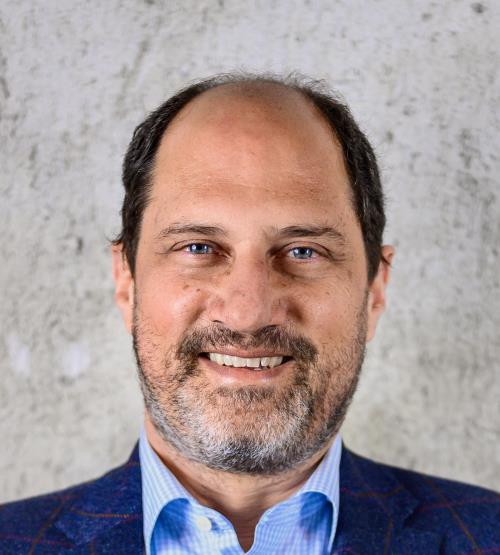Driving corporate action on digital inclusion: Ranking 200 most influential tech companies
World Benchmarking Alliance
Session 194
The World Benchmarking Alliance (WBA) will launch the 2023 Digital Inclusion Benchmark assessing a total of 200 of the world’s most influential technology companies' contributions towards achieving digital inclusion.
The companies have been assessed on four measurement areas; Enhancing universal access to digital technologies; Improving all levels of digital skills; Fostering trustworthy use by mitigating risks and harms; Innovating openly, inclusively, and ethically. For the first time, the benchmark has incorporated into the final scores company performance on human rights issues such as decent work for all and acting ethically.
The 45-minute in-person roundtable session will feature panellists from governments, investors and civil society groups who will explore, share planned coordinated actions and collaboration with multi-stakeholders that can effectively drive action towards achieving digital inclusion.
Context on the benchmark
The Digital Inclusion Benchmark tracks how tech companies are helping to advance a more inclusive digital society. Company commitments, disclosure and performance are evaluated under four measurement areas: access, skills, use, and innovation.
The benchmark is free, published annually and shared with government, investor and civil society stakeholders worldwide, including over 330 Allies. During its first year, 2020, the benchmark assessed 100 of the world’s most influential digital technology companies, such as online platforms, network providers and equipment manufacturers. In 2021, 150 companies were assessed on digital inclusion. During the second iteration, the results showed that whilst many digital companies spent pages citing the benefits and potentials of artificial intelligence (AI), few seemed concerned about the risks. Just 20 out of 150 committed to publicly available principles for ethical AI. This key finding informed the first Digital CIC topic.
Now in its third year, the benchmark scope has increased to 200 companies, and includes all digital technology companies that are part of the SDG2000 – WBA’s list of the 2,000 most influential companies for helping to achieve the Sustainable Development Goals (SDGs).
For more information about the development of the benchmark and how companies were selected, please refer to the methodology, available here.

Vincent Kaufmann (1980) has been the CEO of Ethos Foundation and of Ethos Services since June 2015. Vincent Kaufmann joined Ethos in 2004 as a Corporate Governance Analyst, later becoming a Senior and Deputy Head of Corporate Governance. He has been a member of Ethos Services’ management in charge of investment since 2011 and deputy CEO since 2013.
Since June 2019, he sits on the board of Swiss Sustainable Finance.
Vincent Kaufmann, a Swiss-certified Expert in Accounting and Controlling since 2009, holds a Master’s degree in Business Economics from the University of Geneva (2004).

Samita is passionate about sustainable development and especially the role that the private sector can play in creating a better world for everyone. In her role at WBA, she conducts research and draws insights to ensure that digital companies play a greater role to create a more equal world. Before joining WBA, she worked for Corporate Citizenship in Santiago de Chile advising publicly listed Latin American companies on how to strengthen their sustainability strategies and reporting for S&P Global's Dow Jones Sustainability Index. Prior to that, she worked for Accountability Lab in Kathmandu, TechChange in Washington, D.C. and also helped with projects at the World Economic Forum and the International Organization for Migration in Geneva. Samita holds a MA in Development Studies from the Graduate Institute of Geneva (IHEID) and a BA in History from Goshen College in the United States. Born and raised in Kathmandu, Nepal, she is currently based in Turin, Italy.

Rizki Ameliah (Kiki) currently serves as the Coordinator of the Digital Literacy Program, Ministry of Communication and Information Technology - Indonesia. Rizki has worked as a State Civil Apparatus (ASN) for the Ministry of Communication and Information Technology since 2009. She has a formal educational background in the fields of English Literature (Bachelor's Degree) and Public Relations (Master's Degree), she is also an alumnus of the Australian Awards Indonesia Awardee. She is actively involved in various international trials related to Internet governance and active in several national multi-stakeholder institutions. Kiki's passion in encouraging multi-stakeholders for building inclusive and participatory Internet governance, successfully making the National Digital Literacy Movement Siberkreasi program a winner in the 2020 WSIS Prizes facilitated by ITU.

Marc Limon is Executive Director of the Universal Rights Group (URG), a think tank focused on international human rights policy, with offices in Geneva, New York, and Bogota.
Prior to founding the URG in 2013, Marc Limon worked as a diplomat at the UN Human Rights Council from the body’s establishment in 2006 until the end of 2012. This included participating in the negotiations on the institution-building package, on the Council’s mid-term review, and on a wide-range of thematic and country-specific issues. He was lead negotiator on nine different UN resolutions dealing with issues such as human rights and climate change, human rights and the environment, freedom of assembly and association, and the Third Optional Protocol to the UN Convention on the Rights of the Child. Alongside his colleague Subhas Gujadhur (Mauritius), he also established the Human Rights Council’s Trust Fund to support the participation of Least Developed Countries and Small Island Developing States.
Between 2006 and 2012, Marc also prepared reports for and interacted with all UN human rights treaty bodies, drafted national reports under the Universal Periodic Review, and organised five Special Procedure country missions.
Outside the Human Rights Council, Marc also negotiated agreements and resolutions in the context of the United Nations Framework Convention on Climate Change (UNFCCC), the Economic and Social Council (ECOSOC), the World Trade Organisation (WTO), the United Nations Conference on Trade and Development (UNCTAD), and the Global Platform for Disaster Risk Reduction (UNISDR).
Prior to entering diplomatic service, Marc worked as a government relations consultant in Brussels, advising a range of corporate and public clients on EU external relations, human rights, trade and environmental policy.
Marc has written extensively on the international human rights system. He has published articles in various journals including, inter alia, the Harvard Environmental Law Review, the Review of European Community and International Environmental Law (RECIEL), and the Georgia Journal of International and Comparative Law; and chapters for books on, inter alia, Special Procedures and freedom of religion or belief. He holds Masters degrees from the University of Cambridge (UK), Katholieke Universiteit Leuven (Belgium) and the Libre Universite de Bruxelles (Belgium).

Michael Kende is a Digital Development Specialist with the World Bank Group, Senior Advisor at Analysys Mason, and Board Chair of the Datasphere Initiative. Most recently, he was the Chief Economist of the Internet Society. Prior to joining the Internet Society in August 2013, Michael Kender was a partner at Analysys Mason, a global consulting firm focused on telecommunications and media. He was head of the Policy and Regulatory sector, head of the U.S. office, and developed the Internet policy practice. He has done a significant amount of work on promoting Internet development in emerging regions around the world. He is also working on the economics of cybersecurity, as a means to reduce data breaches and increase trust in the Internet. He has a Ph.D. in economics from MIT and a BA in mathematics and economics from Bowdoin College, and is the author of the book ‘The Flip Side of Free: Understanding the Economics of the Internet’.

Elaine Laird is passionate about driving big change. As the head of Logitech’s Community & Advocacy (C&A) team, Elaine is responsible for the vision and strategic plan for the company’s social impact programming, ensuring that Logitech as a company is driving big change by enabling people to design more fulfilling lives and a better planet. Elaine has been with Logitech for over 20 years and has held various leadership roles including Head of Global Supply Chain.
-
 C1. The role of governments and all stakeholders in the promotion of ICTs for development
C1. The role of governments and all stakeholders in the promotion of ICTs for development
-
 C3. Access to information and knowledge
C3. Access to information and knowledge
-
 C4. Capacity building
C4. Capacity building
-
 C5. Building confidence and security in use of ICTs
C5. Building confidence and security in use of ICTs
-
 C6. Enabling environment
C6. Enabling environment
-
 C10. Ethical dimensions of the Information Society
C10. Ethical dimensions of the Information Society
-
 C11. International and regional cooperation
C11. International and regional cooperation
-
 Goal 1: End poverty in all its forms everywhere
Goal 1: End poverty in all its forms everywhere
-
 Goal 5: Achieve gender equality and empower all women and girls
Goal 5: Achieve gender equality and empower all women and girls
-
 Goal 8: Promote inclusive and sustainable economic growth, employment and decent work for all
Goal 8: Promote inclusive and sustainable economic growth, employment and decent work for all
-
 Goal 10: Reduce inequality within and among countries
Goal 10: Reduce inequality within and among countries
-
 Goal 11: Make cities inclusive, safe, resilient and sustainable
Goal 11: Make cities inclusive, safe, resilient and sustainable
-
 Goal 13: Take urgent action to combat climate change and its impacts
Goal 13: Take urgent action to combat climate change and its impacts
-
 Goal 17: Revitalize the global partnership for sustainable development
Goal 17: Revitalize the global partnership for sustainable development